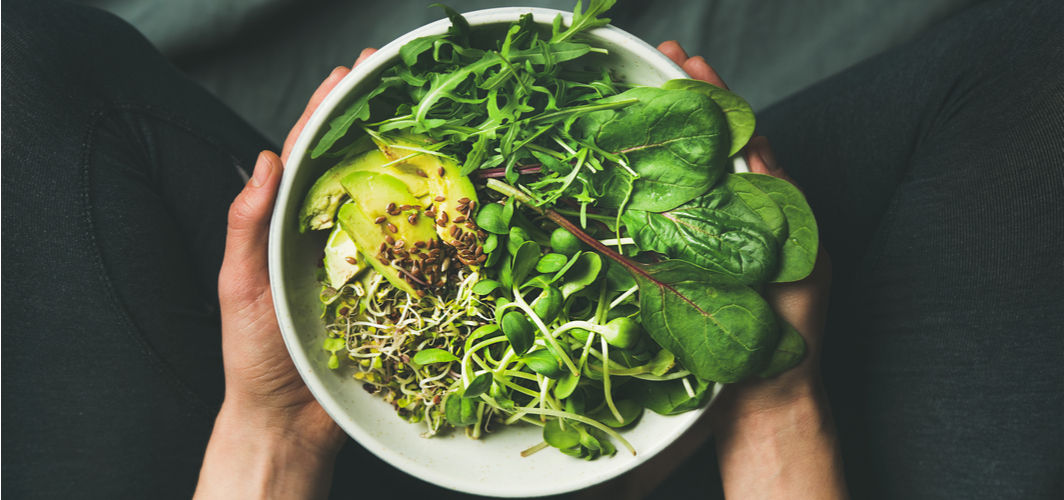What are the Best Things to Eat for Acid Reflux? A Guide for Managing Symptoms Through Diet
Discover the best foods to eat and avoid for acid reflux in this comprehensive guide. Learn how to manage symptoms through diet, incorporating non-citrus fruits, lean proteins, and whole grains.
Introduction
Acid reflux is a common digestive disorder that occurs when stomach acid flows back into the esophagus, causing irritation and discomfort. While medication can provide relief, adopting a suitable diet is crucial for effectively managing acid reflux symptoms. In this comprehensive guide, we will explore the best foods to eat and the ones to avoid, along with lifestyle adjustments and herbal remedies that can help alleviate acid reflux symptoms.
Understanding Acid Reflux
Acid reflux, also known as gastroesophageal reflux disease (GERD), occurs when the lower esophageal sphincter (LES) weakens or relaxes inappropriately, allowing stomach acid to flow back into the esophagus. This can lead to a burning sensation in the chest, known as heartburn, along with other uncomfortable symptoms like regurgitation, difficulty swallowing, and a sour taste in the mouth.
Importance of Diet in Managing Acid Reflux
Diet plays a significant role in managing acid reflux symptoms. Certain foods can trigger or worsen acid reflux, while others can help soothe the irritation. By making strategic dietary choices, individuals can find relief from their symptoms and improve their overall quality of life.

Foods to Avoid for Acid Reflux
Acidic and Citrus Foods
Citrus fruits and acidic foods like tomatoes, oranges, lemons, and grapefruits can increase stomach acid production and worsen acid reflux symptoms. It’s best to avoid or limit the consumption of these foods.
Spicy and Fried Foods
Spicy and fried foods can irritate the digestive tract and relax the LES, making them common triggers for acid reflux. Chili peppers, hot sauces, and deep-fried items should be consumed in moderation.
Carbonated Beverages and Caffeine
Carbonated beverages, such as soda and sparkling water, can cause bloating and increase pressure on the LES, leading to acid reflux. Additionally, caffeine found in coffee, tea, and energy drinks can trigger acid production and exacerbate symptoms.
High-Fat Foods
Fatty foods slow down the emptying of the stomach and can relax the LES, allowing stomach acid to flow back into the esophagus. Avoid high-fat foods like fried dishes, fatty cuts of meat, and full-fat dairy products.

Best Foods to Eat for Acid Reflux
Non-Citrus Fruits and Vegetables
Opt for non-citrus fruits like bananas, apples, pears, melons, and berries, as they are less likely to trigger acid reflux. Incorporate vegetables like broccoli, cauliflower, leafy greens, and sweet potatoes into your diet for added nutrients and fiber.
Lean Proteins
Choose lean protein sources like skinless poultry, fish, tofu, and legumes, as they are less likely to cause acid reflux compared to high-fat meats. Protein is essential for repairing tissues and maintaining overall health.
Whole Grains and Fiber-rich Foods
Whole grains, such as oats, brown rice, quinoa, and whole wheat bread, are excellent sources of fiber that can aid digestion and prevent acid reflux. Be sure to opt for low-fat or fat-free versions of grain products.
Low-fat Dairy Products
Low-fat or fat-free dairy products, like yogurt and milk, can provide essential nutrients without triggering acid reflux symptoms. Calcium-rich dairy products can help maintain bone health as well.
Herbal Remedies and Supplements
Aloe Vera Juice
Aloe vera juice has anti-inflammatory properties that can help soothe the esophagus and reduce irritation caused by acid reflux. Drink a small amount of aloe vera juice before meals to ease symptoms.
Ginger
Ginger has been used for centuries to aid digestion and reduce inflammation. Drinking ginger tea or adding ginger to meals may help alleviate acid reflux symptoms.
Slippery Elm
Slippery elm, in the form of supplements or lozenges, can provide a protective coating to the esophagus and reduce irritation from stomach acid.
Licorice Root
Licorice root supplements or deglycyrrhizinated licorice (DGL) can help reduce stomach acid production and provide relief from acid reflux symptoms.

Lifestyle and Eating Habits to Reduce Acid Reflux
Eating Smaller, More Frequent Meals
Large meals can put pressure on the LES, increasing the likelihood of acid reflux. Opt for smaller, more frequent meals throughout the day to ease digestion.
Chewing Thoroughly and Eating Slowly
Chewing food thoroughly and eating slowly can aid digestion and reduce the risk of swallowing excess air, which can contribute to bloating and acid reflux.
Maintaining a Healthy Weight
Excess weight can put pressure on the abdomen and LES, leading to acid reflux. Adopting a healthy diet and regular exercise routine can help maintain a healthy weight.
Avoiding Eating Close to Bedtime
Eating right before bedtime can worsen acid reflux symptoms. Aim to finish meals at least two to three hours before lying down to allow sufficient time for digestion.
Drinks to Soothe Acid Reflux Symptoms
Alkaline Water
Alkaline water can help neutralize stomach acid and reduce acid reflux symptoms. It may also help hydrate the body more effectively than regular water.
Herbal Teas
Herbal teas, such as chamomile, licorice, and ginger tea, can provide soothing relief for acid reflux symptoms.
Non-Citrus Fruit Juices
Opt for non-citrus fruit juices like apple or pear juice instead of acidic options to quench your thirst without exacerbating acid reflux symptoms.

Sample Meal Plan for Acid Reflux
Breakfast
- Oatmeal with sliced bananas and a drizzle of honey
- Low-fat Greek yogurt topped with berries
- Herbal tea or alkaline water
Lunch
- Grilled chicken salad with mixed greens, cucumbers, and tomatoes
- Quinoa and vegetable stir-fry
- Ginger tea or non-citrus fruit juice
Snacks
- Carrot sticks with hummus
- Rice cakes with almond butter
- Aloe vera juice or herbal tea
Dinner
- Baked salmon with steamed asparagus
- Brown rice or quinoa
- Slippery elm supplement or herbal tea
Additional Tips for Managing Acid Reflux
Elevating the Head of the Bed
Raising the head of your bed by around 6 to 8 inches can help prevent stomach acid from flowing back into the esophagus while you sleep.
Identifying Trigger Foods
Keep a food diary to identify specific foods that trigger your acid reflux symptoms, and try to avoid them in your diet.
Managing Stress and Anxiety
Stress and anxiety can exacerbate acid reflux symptoms. Practice relaxation techniques like deep breathing, yoga, or meditation to manage stress effectively.
Seeking Medical Advice
If your acid reflux symptoms persist or worsen, it’s essential to consult a healthcare professional for a proper diagnosis and personalized treatment plan.

Conclusion
Managing acid reflux through diet and lifestyle adjustments can significantly improve the quality of life for individuals suffering from this condition. By avoiding trigger foods and incorporating the best choices into their diet, individuals can alleviate symptoms and reduce the frequency of acid reflux episodes. Additionally, herbal remedies and supplements may provide additional relief.
Appendices
References:
- Kahrilas, P. J., Shaheen, N. J., & Vaezi, M. F. (2008). American Gastroenterological Association Institute Technical Review on the management of gastroesophageal reflux disease. Gastroenterology, 135(4), 1392-1413.
- Richter, J. E. (2005). Gastroesophageal reflux disease treatment: side effects and complications of fundoplication. Clinical Gastroenterology and Hepatology, 3(5), 465-471.
- National Institute of Diabetes and Digestive and Kidney Diseases. (n.d.). Eating, Diet, & Nutrition for GER & GERD. Retrieved from https://www.niddk.nih.gov/health-information/digestive-diseases/acid-reflux-ger-gerd-adults/eating-diet-nutrition
FAQs:
Q1: What causes acid reflux? A1: Acid reflux is often caused by a weakened lower esophageal sphincter (LES), allowing stomach acid to flow back into the esophagus.
Q2: Can I eat citrus fruits if I have acid reflux? A2: It’s best to avoid or limit citrus fruits as they can trigger acid reflux symptoms due to their acidic nature.
Q3: Are there any natural remedies for acid reflux? A3: Yes, herbal remedies like aloe vera juice, ginger, slippery elm, and licorice root may help soothe acid reflux symptoms.
Disclaimer:
The information provided in this article is for educational and informational purposes only. It should not be considered as medical advice, and readers are encouraged to consult qualified healthcare professionals for personalized diagnosis and treatment plans. The author and publisher of this article are not liable for any adverse effects or consequences resulting from the use of the information presented herein. Always seek professional medical advice before making significant changes to your diet or lifestyle to manage acid reflux or any other medical condition.

Camellia Wulansari is a dedicated Medical Assistant at a local clinic and a passionate health writer at Healthusias.com. With years of hands-on experience in patient care and a deep interest in preventive medicine, she bridges the gap between clinical knowledge and accessible health information. Camellia specializes in writing about digestive health, chronic conditions like GERD and hypertension, respiratory issues, and autoimmune diseases, aiming to empower readers with practical, easy-to-understand insights. When she’s not assisting patients or writing, you’ll find her enjoying quiet mornings with coffee and a medical journal in hand—or jamming to her favorite metal band, Lamb of God.







